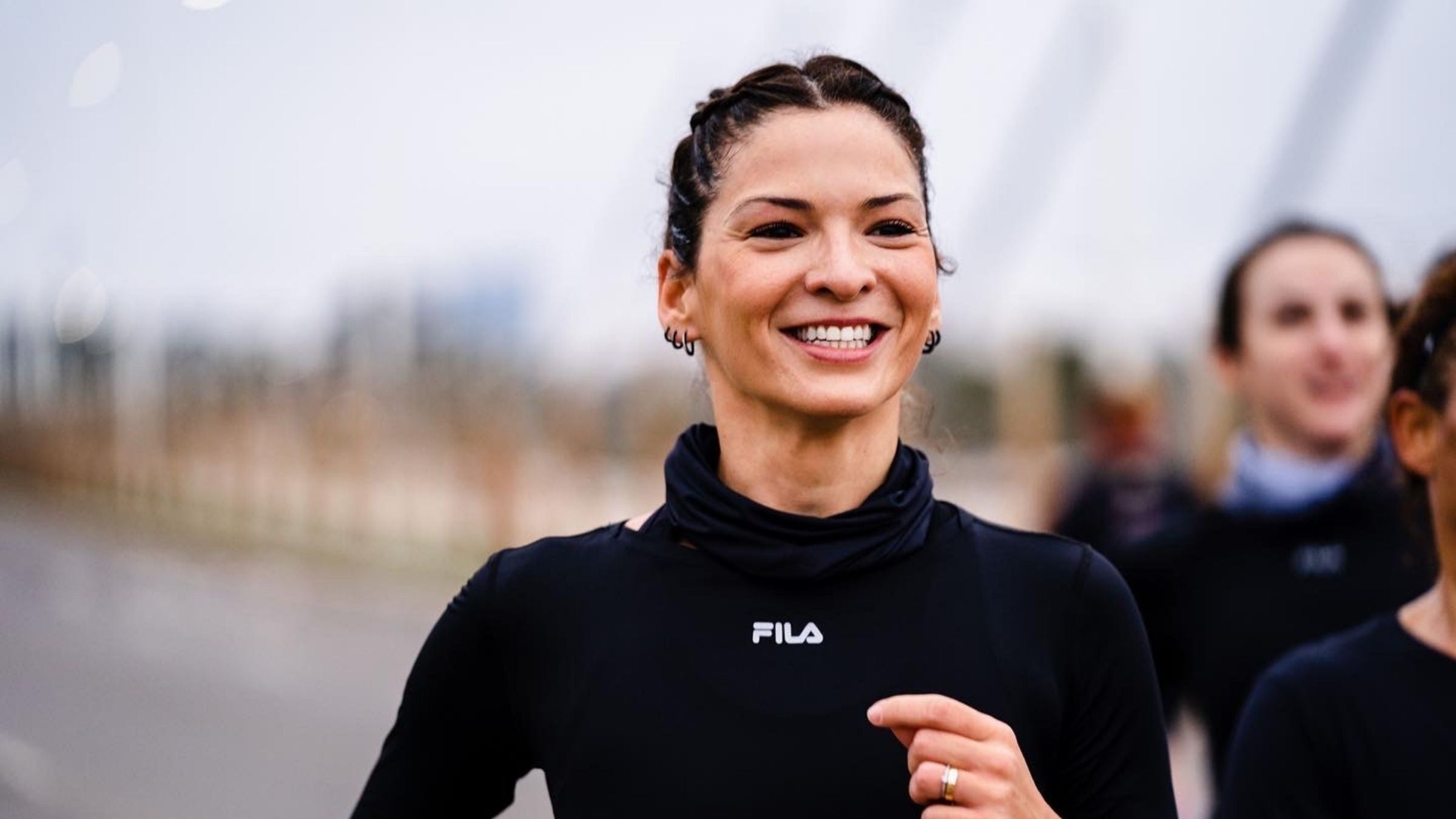Most Brazilian Women Have Never Done A Sport; Nathalia Fuzaro Wants to Change That With Tri

(Photo: Nathalia Fuzaro)
When the alarm rings at 5 a.m. Nathalia Fuzaro, 34, jumps out of the bed to start the day, running and cycling in the grayish streets of São Paulo. The sight of her exercising amidst art deco and modernist buildings is familiar for those in her area; this is her beat, as a journalist and a triathlete in Brazil.
Fuzaro first discovered triathlon six years ago while at the doctor’s office. A long and complicated journey had brought her here, with suspicious symptoms that eventually resulted in the need to remove a kidney. The process had taken its toll on her, and she was looking for a way to reclaim her health and her life. She found it in one of the magazines stacked up in the waiting room, where she read an article about a woman who overcame depression through triathlon.
“I felt very inspired,” Fuzaro recalls of the moment. “I was very sick and sad, and the triathletes seemed incredible and strong. I wanted to be like them.”
In that moment, she committed to training for a triathlon as soon as she recovered from her surgery. Forty days later, she got the all-clear from her doctor, and began training. A year later, she completed her first Olympic-distance race. “I never looked back,” she said.
The discipline of training for three sports in her personal life gave her the structure and focus needed to work as an editor at Glamour Brazil. She saw an opportunity to promote exercise and wellness to the predominantly-female readership of the magazine, providing the same kind of inspiration she got from the magazine articles in her doctor’s office.
“[In Brazil] there aren’t many women to show others that we are capable of doing triathlon too,” Fuzaro said. “This is a very male and intimidating sport, and if we don’t see ourselves represented or supported, women won’t try it.”
This is particularly true in Brazil, where 68% of Brazilian women have never practiced any sport. Costs for gear are high and there are few public and safe places to bike, and even fewer places to swim. Fuzaro wanted to help women overcome the barriers to triathlon, and knew there was more she could do. In 2019, she partnered with fellow journalist Natália Leão to launch Inspira e Transpira (Inspire and Transpire), a website designed to engage and empower other women to lead healthy, active lifestyles.
Her work has taken on even more importance with the onset of the COVID-19 pandemic. Brazil is one of the countries most affected, second globally in death rates and third in infections. The country is feeling the effects of the disease in many ways, and Fuzaro sees her neighbors struggling. “It changed everything,” Fuzaro said. Brazilians went from cycling, running, and swimming to being locked inside their homes.
Inspira e Transpira responded by launching information and resources to help women continue exercising for physical and mental health during the pandemic. In addition to indoor workouts and advice for building at-home gyms, the site provides inspiration and motivation to continue bettering oneself through triathlon.
Things are busy for Fuzaro, but her passion for sport and helping other women makes her work a labor of love.
RELATED: Women in Triathlon: Where Are We Now?
A Day in the Life of Nathalia Fuzaro
As journalist and entrepreneur, Fuzaro has a busy schedule between work, her personal life, and triathlon training. Here’s a typical day making it all work:
5 a.m. – Wake up and have breakfast
6 – 7:30 a.m. – Run or bike
8 – 9 a.m. – Swim or strength training
10 a.m. – Second (and more complete) breakfast and housekeeping
11 a.m. – Start to work
1 p.m. – Lunchtime
2 p.m. – Back at work
8 p.m. – Turn computer off and resolve any personal matters, set out training gear for the next day’s workouts
9 p.m. – Dinner time, watch TV with husband
10 p.m. – Bedtime